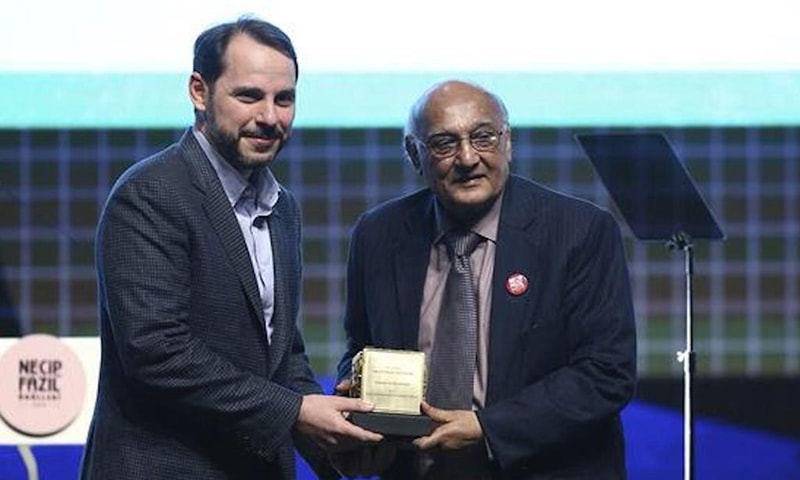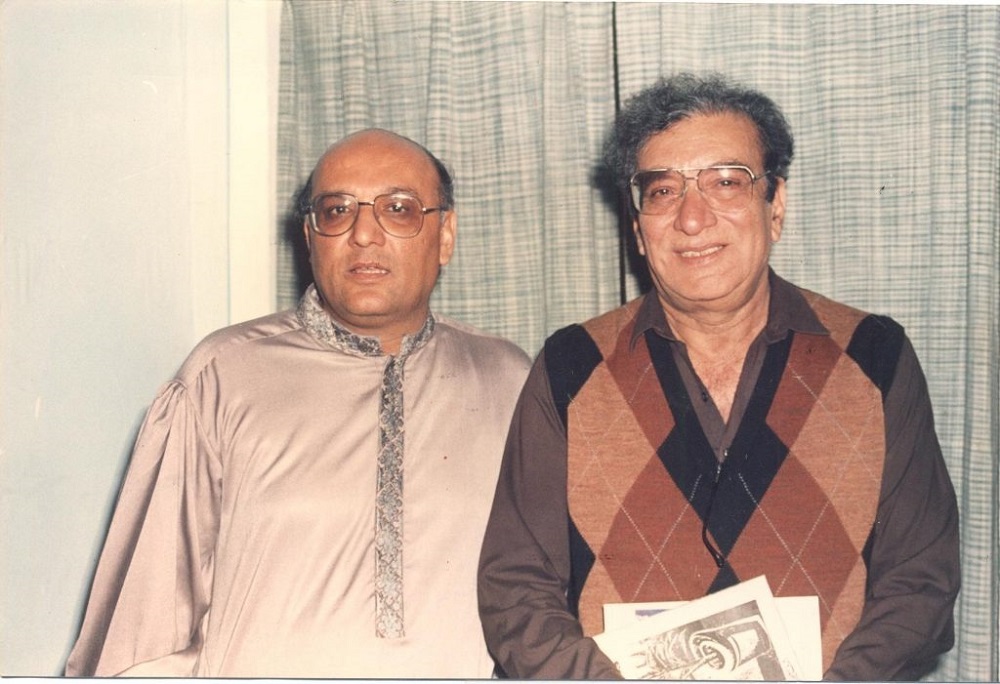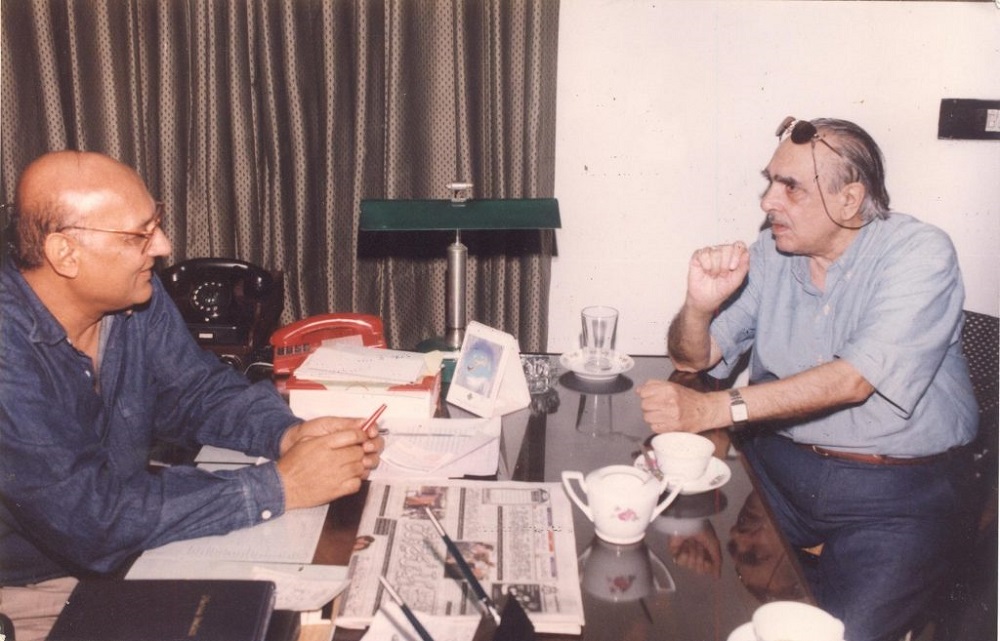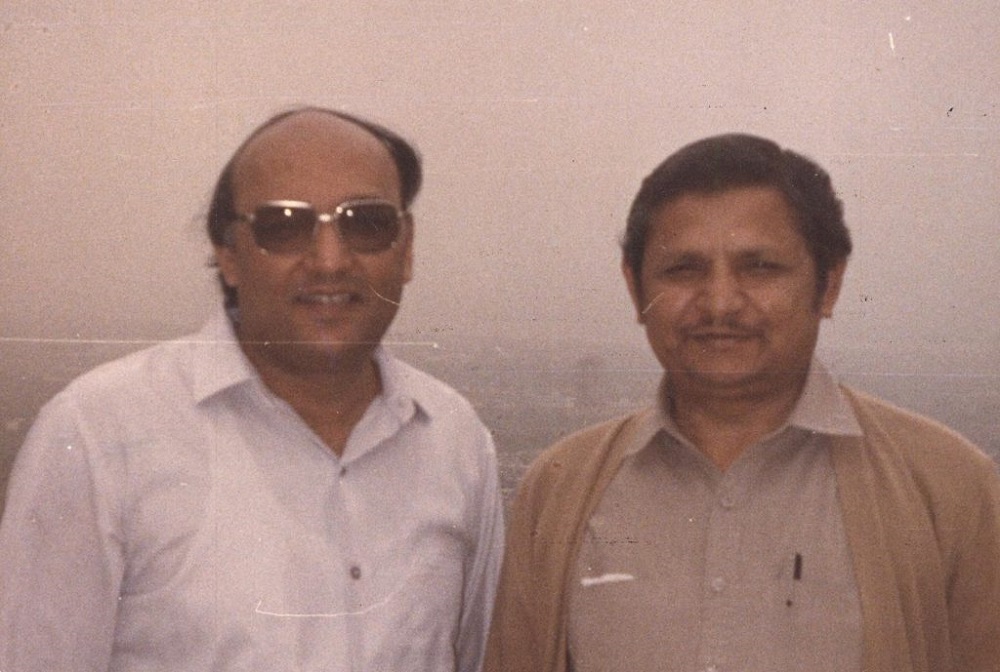Written by: Haroon Shuaib
Posted on: May 06, 2022 |  | 中文
| 中文
Amjad Islam Amjad
According to some estimates, on average a Pakistani spends at least two hours a day watching television. The ‘90s saw a sudden liberalization of television with over 50 private news and about 40 private entertainment channels mushrooming at breakneck speed in the country. Reflecting why despite this growth in the television industry, we don’t see drams of the same quality that was a hall mark for Pakistan being written, Amjad Islam Amjad reflects, “While we didn’t have enough creative human resource to generate quality content for one state TV at that point in time, this abrupt opening of television industry meant that most of the channels relied on people who were ill-prepared and ill-equipped. This started reflecting in the quality of every genre of television productions including drama. What made matters worse was the fact that most of these channels were owned by businessmen whose interest was only profit, with little or no interest in their impact on society. Hence, content was only responsive to the market demands. This further alienated writers such as Hasina Moin, Asghar Nadeem Syed and myself. I have not written a drama for television in the last 16 years.”
“People still come to me asking me to write a script for a TV play. Initially they came more frequently, and when I consistently refused to write on their terms, their numbers started decreasing. Even now I get a couple of people expressing interest every month, but I cannot write what they want to sell. They need my name but not my work. They want me to write sensational stories of disloyalty in every relationship. These are also realities of life but they are not the only reality, and that is where my vision does not match theirs,” Amjad Islam Amjad elaborates. He is hopeful that this phase too shall pass and with the advent of OTT subscription platforms, things are starting to change. “People are also getting tired of these hackneyed themes in every drama. Most of this content is unsuitable for family viewing, then how can these channels claim to be family channels. Our dramas, undoubtedly remained number one in the subcontinent till the mid-nineties, although after that our drama industry started getting influenced by the themes that were introduced by Indian satellite channels. There is no harm in taking influences from international trends, but as long as they are positive. This influence was not useful for us, and instead of bringing any value to our drama, it made the quality of our dramas drop further,” he elaborates. It is unfortunate that during this transition period, Pakistan’s drama industry did not get influenced by the Iranian television industry, and one of the main reasons for that could be the language barrier. Though according to Amjad Islam Amjad, in terms of technology and creative content, Iranian television has been much more impactful and effective. Talking about the influence of other television and particularly drama industries of the region, he shares, “I was in Turkey in 2019 to receive an award, and that is when the Turkish drama ‘Dirilis: Ertugrul’ was being produced. I got a chance to observe its production very closely, and I was amazed to see the world-class facilities they had sourced including equipment, technology and special effects for the production of this drama. I believe that even this drama, and another Turkish drama that became popular in Pakistan, ‘Ishq-e- Mamno’, did not reflect a culture which is similar to ours. In case of China also, we didn’t make a lot of effort. One of our films ‘Mera Naam Hay Mohabbat’ (My Name is Love, 1975) was dubbed in Chinese and released there, and then my drama ‘Waris’ was dubbed in Chinese in 1986 and ran on TV channels there. These days I am in conversation with some Chinese interested parties to do some collaboration and produce some content, but it is still at a very early stage of discussions.”

Amjad Islam Amjad receives the Necip Fazil International Culture and Art Award from Turkey’s finance minister (Credits to Dawn News)
We hope that Amjad Islam Amjad reconsiders his decision to stop writing for television dramas and we get to see more quality work from him in future, reminiscent of the brilliant and memorable serials that he has produced in the past, are still remembered by followers of Pakistan’s drama. “My decision to not write television dramas any more is not carved in stone. If the concerns that forced me to stop writing television plays are addressed, I will be happy to write again for TV. I have earned a lot of respect and popularity from my career as a writer of TV dramas. I don’t want to taint that reputation by compromising on my principles. I cannot take that risk,” he ends with a smile.



You may also like: